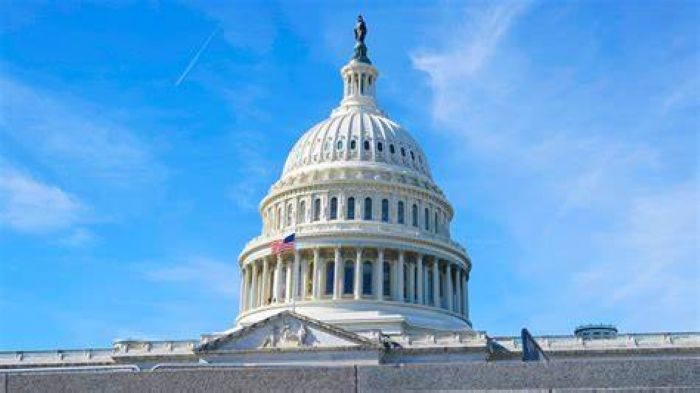US House approves funding bill, sends it to Senate hours before government shutdown deadline
Hours before the government shuts down at midnight, the House approved a new plan from Speaker Mike Johnson late Friday that would temporarily fund federal operations and disaster aid, but would prevent raising the debt ceiling in the new year. President-elect Donald Trump's demands were rejected.
Johnson insisted that Congress “will meet our obligations” and will not allow federal operations to be shut down before the Christmas holiday season. But the day's outcome was uncertain as Trump stressed his insistence that a debt ceiling increase must be included in any deal — if not, he said in a morning post, calling for closure “to begin now.”
The bill was approved 366-34, and will now head to the Senate, where it is expected to pass quickly.
“We're excited about this outcome,” Johnson said later, adding that he had spoken with Trump and the president-elect “is certainly pleased with the outcome, as well.”
It was the third attempt by Johnson, the embattled House Speaker, to achieve one of the fundamental requirements of the federal government—keeping it open. And it raised obvious questions about whether Johnson will be able to save his job in the face of angry GOP colleagues, and work with Trump and billionaire ally Elon Musk, who has played legislative games this time.
Trump's last-minute demands were almost impossible, and Johnson had almost no choice but to work around his push for a debt ceiling increase. The President knew that there would not be enough support within the GOP majority to pass any funding package, as many Republicans preferred to shrink the federal government and certainly would not allow more debt.
Instead, Republicans, who will have full control of the White House, House and Senate next year, with big plans for tax cuts and other priorities, are showing they need the votes to maintain the regular operations of governance. Will have to rely on regular Democrats.
“So is this a Republican bill or a Democrat bill?” Musk scoffed on social media ahead of the vote.
The new 118-page package will fund the government at current levels until March and add $100 billion in disaster assistance and $10 billion in agricultural aid to farmers.
Trump's demand to lift the debt ceiling is dead, which GOP leaders told lawmakers would be debated as part of his tax and border package in the new year. Republicans at the time struck a so-called handshake agreement to raise the debt ceiling while also cutting spending by $2.5 trillion over 10 years.
This is essentially the same deal that failed in a spectacular blow last night – opposed by most Democrats and some of the most conservative Republicans – except for Trump's debt limit demands.
Democratic leader Hakeem Jeffries had been in touch with Johnson, but Democrats did not respond to the latest effort after the Republican speaker reneged on their original bipartisan agreement.
“Welcome back to the MAGA swamp,” Jeffries posted.
Representative Rosa DeLauro, the top Democrat on the Appropriations Committee, said it seemed as if Musk, an unelected official and the world's richest man, was making decisions for Trump and Republicans.
“Who's in charge?” he asked during the debate.
Nevertheless, the White House supported the final bill, and Democrats cast more votes than Republicans for its passage. About three dozen Republicans voted against it.
Trump, who has not yet taken the oath of office, is also showing the power and limits of his influence with Congress as he intervenes and arranges matters with Musk from Mar-a-Lago, leading up to Wale is leading the administration's new government efficiency department.
“If there's going to be a government shutdown, let it start now,” Trump posted on social media early in the morning.
Trump doesn't fear a government shutdown the way Johnson and lawmakers view the federal shutdown as a political defeat that hurts Americans' livelihoods. The incoming Trump administration has pledged to cut the federal budget and lay off thousands of workers. Trump himself initiated the longest government shutdown in history during his first term in the White House, a month-long shutdown over the 2018–19 Christmas holidays and New Year's period.
The most important thing for the president-elect was to get the thorny debt ceiling debate off the table before returning to the White House. The federal debt ceiling expires on Jan. 1, and Trump does not want the first months of his new administration to be spent battling difficult negotiations in Congress to increase the country's borrowing ability. This gives an advantage to the Democrats, who will be in the minority next year.


Comments are closed.